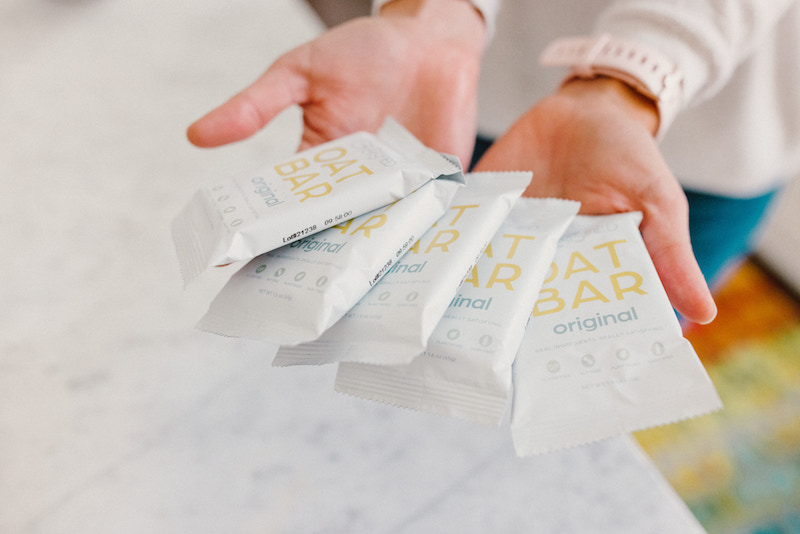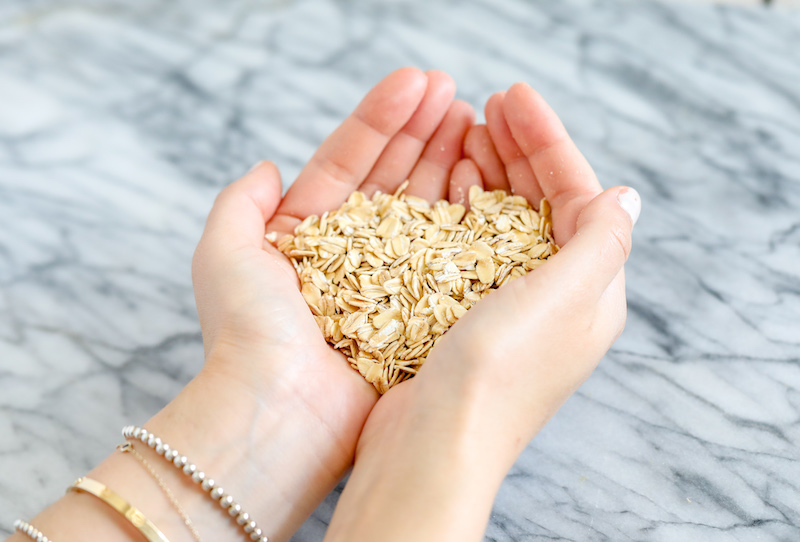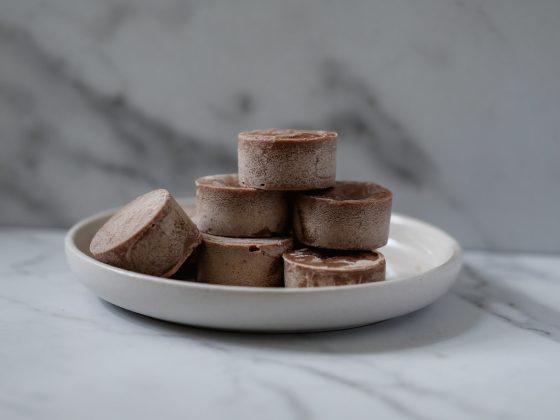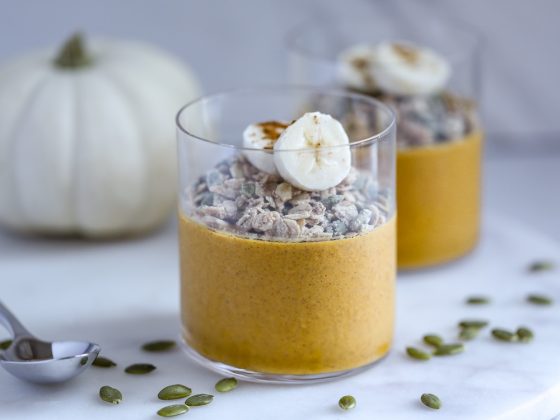Oats are a type of cereal grain that is traditionally gluten-free and filled with vitamins, antioxidants, and fiber. It’s my personal go-to for breakfast, snack, or even a light dinner. I usually have it a couple times a week, usually in the form of overnight oats or when I make baked goods via oat flour. I also loved Gratisfied’s oat bar, a nutrient-dense bar made with oats, sunflower seeds, and honey.

There are a variety of oat types on the market with different preparation methods. Therefore, when purchasing oats, make sure to look at the ingredients and buy accordingly.
- Instant oats are commonly flavored and sweetened with added or artificial sugars. If you really need something quick for when you’re in a time crunch, opt for unsweetened instant oats and add your own toppings, like fresh fruit.
- Old-fashioned or rolled oats are often sold unsweetened with no added sugar. This is generally the type of oats found in granola bars and cereal.
- Steel cut oats are minimally processed oats that retain more nutrients than other oat varieties. These do take some time to cook, but are packed with key nutrients that are good for your body.
Oats are commonly eaten for breakfast, especially in the form of overnight oats or oatmeal. This is because oats are a nutrient-dense food that helps keep you energized and ready to start the day. Here are some of the health benefits:
Oats are rich in soluble fiber.
Soluble fiber is a type of fiber that helps slow down digestion. “Oats contain a substantial amount of soluble fiber, which can aid in blood sugar control. Specifically, soluble fiber works to curtail the postprandial spike in blood sugar that one might see,” says Supriya Lal, RD, a registered dietitian. Soluble fiber intake has also been linked to lowering the risk of heart disease, which is why foods high in soluble fiber are labeled as “heart healthy”.
Oats are a good source of lipids.
Oats contain higher levels of lipids than other cereal grains, according to this study. Lipids are sources of unsaturated fatty acids, which can be beneficial to those who might be managing a heart condition, Lal says. Unsaturated fats are labeled as “heart healthy” fats as they can help lower LDL or “bad” cholesterol and boost heart health.
Oats are filled with antioxidants.
Antioxidants are a crucial nutrient found in a healthy diet that has been shown to improve psychological and cognitive health. Specifically, antioxidants are compounds found in the body and in foods that help fight oxidative stress that reduces the risk of chronic diseases, like type 2 diabetes and heart disease. Oats contain many plant compounds that exhibit antioxidant activity and have been studied to reduce inflammation, this study shows.










